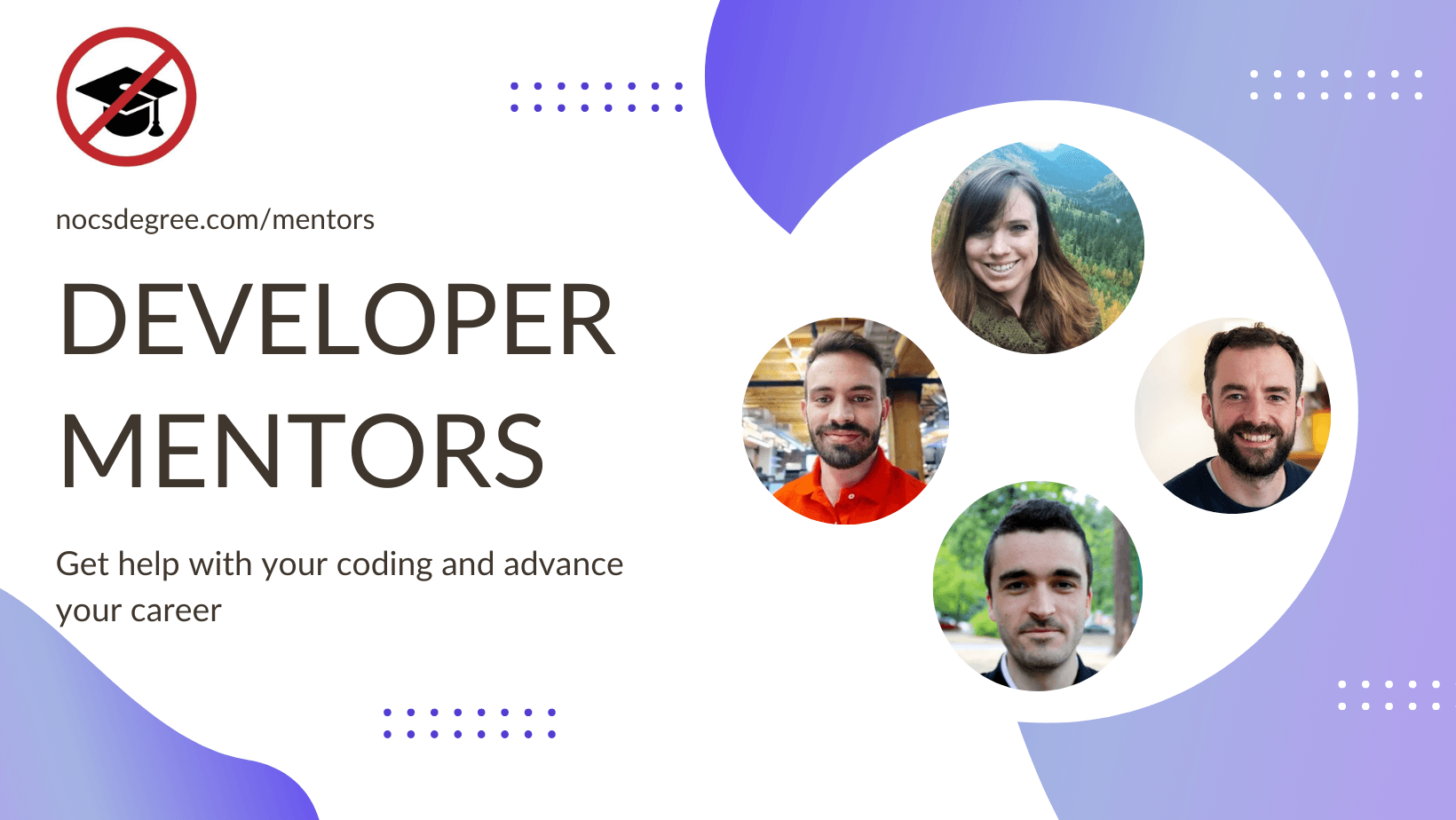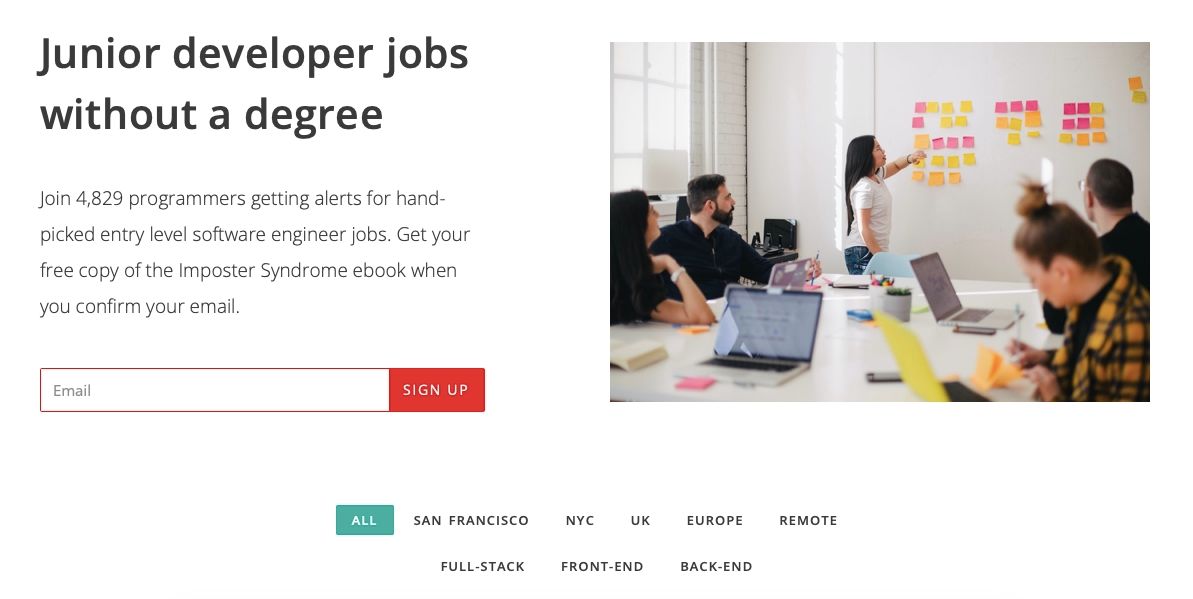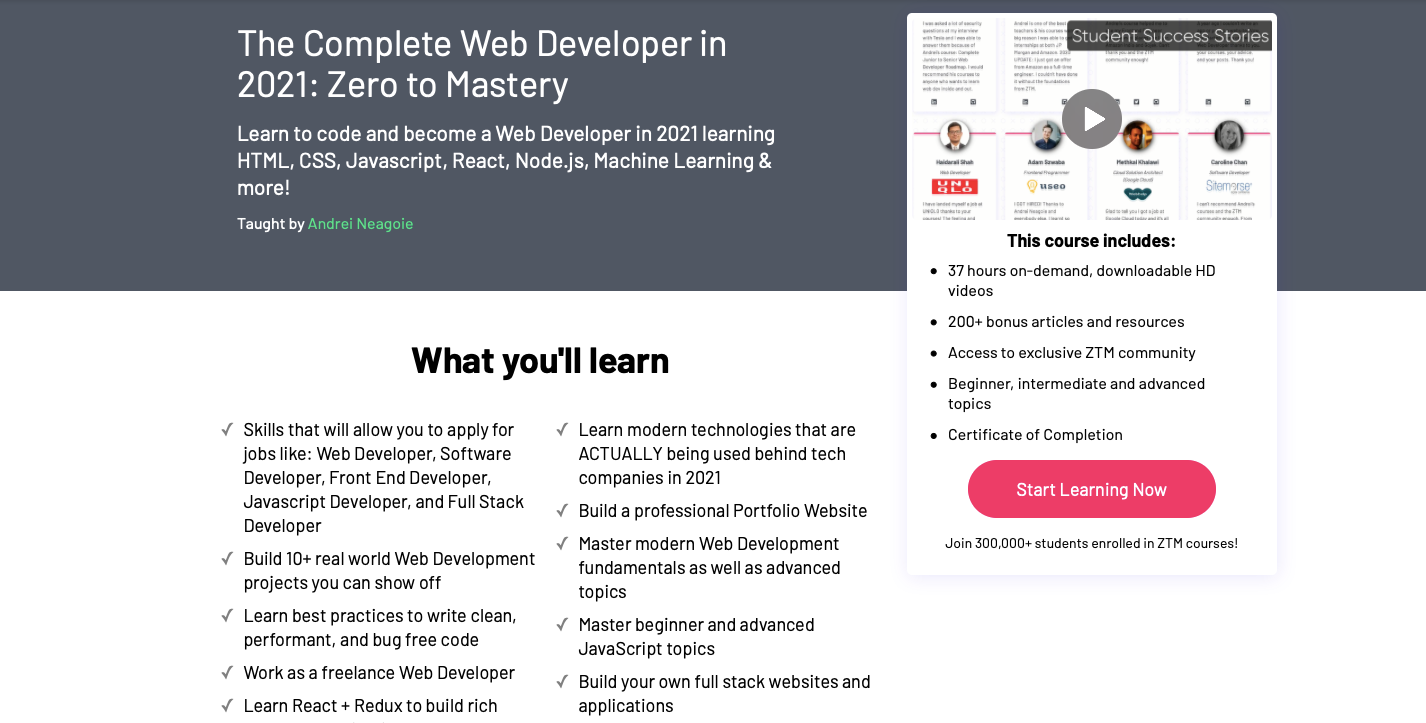Georgina is a self-taught Software Engineer, who learned to code after working in Formula One for McLaren Racing. In this interview Georgina shares her journey into coding, insights into beating imposter syndrome and what a day as a Software Engineer looks like for her.
Hey, so can you introduce yourself?
I’m a Senior Software Engineer at Tractable, where I specialise in creating stable, high quality engineering products that drive real impact. Based in London, I bring together my experiences in product and customer engineering teams to enable rapid scaling of Tractable's Estimating product.
A strong advocate for DEI, I regularly give talks, host workshops and mentor, striving for inclusion and change across the technology industry. My main focus is to support and empower diverse talent entering the technology sector.
Prior to becoming a Software Engineer, I worked in the fast-paced world of Formula 1 at McLaren Racing, performing structural analysis and optimisation of race car parts. I was named as one of the most promising female engineers in the UK in 2016. Combining my experience in traditional and software engineering I am able to give a unique perspective on how to bring value to an engineering team.
How and why did you learn to code?
Whilst I was working as a Structural Design Engineer at McLaren Racing, I began to focus on how we could improve our processes and methodologies. This included coming up with best practices, standards and also automating things. In order to automate manual repetitive tasks, I started to play around with writing scripts in VBA. I really enjoyed this different way of thinking and I started to see that a career in software could satisfy my craving for continuous development.
When COVID hit at the beginning of 2020, the whole of Formula 1 went on furlough for two months. This gave me a lot of time to fully focus on what steps I wanted to take next in my career and, having learnt a bit of python through a freebie Harvard course, I decided I wanted to explore this area further.
I spoke to a lot of people - reaching out to strangers on LinkedIn, asking people to tell me their stories and why they enjoyed software, which affirmed that this would be a good choice for me.
My goals for the 2 months I had on furlough then became:
1. Study up and take some coding courses
2. Get at least one interview by the end of the 2 months
3. Learn to knit a scarf!
I took two courses, in addition to a python introductory course I had already taken whilst at McLaren (a freebie by Harvard). One was “Learn to Code for Data Analysis” by the Open University (again, free) and the other was “Machine Learning Introduction” on Coursera.
Once I finished the Open University course, I started to look at interview questions and applied for a role at Tractable. I got my first interview the week I went back to work after furlough and then by the end of that week I had a job offer!
Looking back at how I started now, I’m not sure I would have changed that much. I came into Tractable very green, but I was fortunate to have some great mentors who guided my learning. There are of course things that you miss when you’re self-taught, so surrounding yourself with supportive colleagues who have the patience to teach those with less experience is crucial.
If you’re going down this route, my recommendations would be to make sure that, when choosing your first software company, your future colleagues are able to teach you - how knowledgeable are they? Do you think they’ll make great teachers and mentors? Equally, a company where you’ll be exposed to a lot of different things early on will help you grow much more quickly.
How has your life changed since learning to code?
I am currently working in a role I love, being challenged every day. Don’t get me wrong, traditional engineering was interesting, and I enjoyed a lot of parts of it, but often I found the processes repetitive. In software, however, each project I get to work on is never the same and you have to approach it in a different way.
I much prefer this type of challenge. Working in such a fast paced industry means that I’ve learnt so much during my time as a software engineer and I know that that learning will never slow which excites me.
The software industry is hugely collaborative, innovative and adaptable. As a result, there are many opportunities to work across the industry to help improve the way things are done.
I’m working closely with a startup called Academy to help create a mentorship movement with the aim of unlocking the potential of diverse talent. I believe that creating a more diverse workforce will lead to higher functioning teams that build better products for the end users (as the teams reflect more accurately the diversity of the end users).
On top of this, if you add in the psychological safety that mentorship provides, you create a team that is more willing and able to challenge each other. This promotes much greater ideation and thus we will be able to learn much more rapidly and as a result build even better products.
By switching into software, I have been able to create a platform where I can promote positive change in one of the critical industries of our time. Learning to code has enabled me to find a career that excites my brain and also allows me to drive initiatives that are at the core of my values.
What does a typical day as a software developer look like for you?
The majority of work I do is product based feature development. This is very collaborative work, spanning across multiple engineering teams, as well as research and product. The work includes ideation discussions, creating designs, iterating on them and then finally implementation.
I am also leading a Stability initiative. For this our main focus is to reduce the amount of incidents we have, so the work involves things like implementing new testing frameworks, creating tools to track test coverage and tackling bigger picture questions, for example around release processes.
Additionally, I help out in team planning and run the sprint processes, working closely with product and the team lead to ensure we hit our targets for product and technical debt reduction within my team.
Before entering into software, I thought that the work might be quite siloed. It was one of my main concerns with making such a leap. I was really happy to find out just how collaborative it is. Typically for a project, I’ll end up working with lots of different people:
- Engineering teams to get ideas, make sure it aligns with their expectations, and to learn from their experiences;
- Product to fully understand the user’s requirements, collaborate on what will work best, explain any tradeoffs that the solution might have for our codebase;
- As well as business stakeholders to ensure that the technical expectations align with what they need to be delivered.
In software we’re all very driven by learning and growth. As a result, no matter what type of team you go into, you can definitely expect to be learning a lot from those around you.
What was the interview process like for your first developer job?
There were 4 interviews and a take home test:
The first interview was a half hour screening with what was going to be my boss. This was a more general discussion followed by some questions about my interest in AI and then a discussion around the future of AI.
After the first interview I got given a take home test. This was a refactoring exercise and of course, since I had no software experience, I had to google what refactoring meant before getting started… Fortunately, it was pretty self explanatory from there!
The second interview was pair programming. We began by discussing the take home test. The questions were around my thought processes on the decisions I made. The rest of the interview was a very standard pair programming exercise.
Thirdly, I had an architectural interview. Being a junior, they centred this more around high level thinking. I didn’t need to know the correct terminologies, it was more about what my thought processes were in separating out a problem and designing a solution.
Finally I had a cultural interview. Having spent two months talking to lots of different people on LinkedIn about why they liked working in software, I was really sure that this was the career path that I wanted. I had also spent a lot of time researching the type of company I would like to work for, making sure that Tractable fit what I was looking for as well as the other way around.
This level of research really showed in this interview and now, being on the other side of the interview panel, I’d encourage everyone wanting to start this journey to do the same.
Did you ever have imposter syndrome?
It’s very natural to have imposter syndrome in an industry where a lot of people studied the subject at university. I remember my first day as a software engineer where I was setting up the repos on my laptop and people were giving me instructions where I didn’t understand half the words - I had never come across git before!
It’s important to remember that everyone above you has gone through the same learning curve, so they’ve been there. As an industry, we’re very open to helping people learn, so don’t be afraid to reach out and ask LOADS of questions. Remember you were hired for a reason and by having a different background (not doing a CS degree), you have something different to offer.
By bringing this diversity of thought into a team, you’ll be helping to generate better ideas and by asking lots of questions, you’ll generate improvements in processes and the designs of the systems.
What are your career goals for the future?
My long term ambition is to become a founder or CTO of a start up. I’d like to combine my technical expertise with my studies in business to guide the technical direction of a company at its early stages.
I thrive off the fast paced and energetic start up world and it would be amazing to be able to see a business idea of mine come to life. I love the combination of working with people and tech so my next step in my career is to move into a team leadership role, which I’m aiming to do early next year.
Outside of my technical day to day, I do a lot of work promoting diversity, equity and inclusion (DEI) in the industry. I want to support and empower diverse talent entering the technology sector. When I started my career, I didn’t have any role models who were like me that I could look up to, so an aim of mine is to try and be that role model for others.
I’m doing a lot of public speaking and mentoring currently. Last year I got to speak on the same a *virtual* stage as Michelle Obama as a keynote speaker at Women In Technology World Series! Following that, my next speaking career goal was to speak at Women of Silicon Roundabout, which I am doing this November.
If you are interested in what I’m doing and would like to chat, feel free to reach out to me on LinkedIn.





